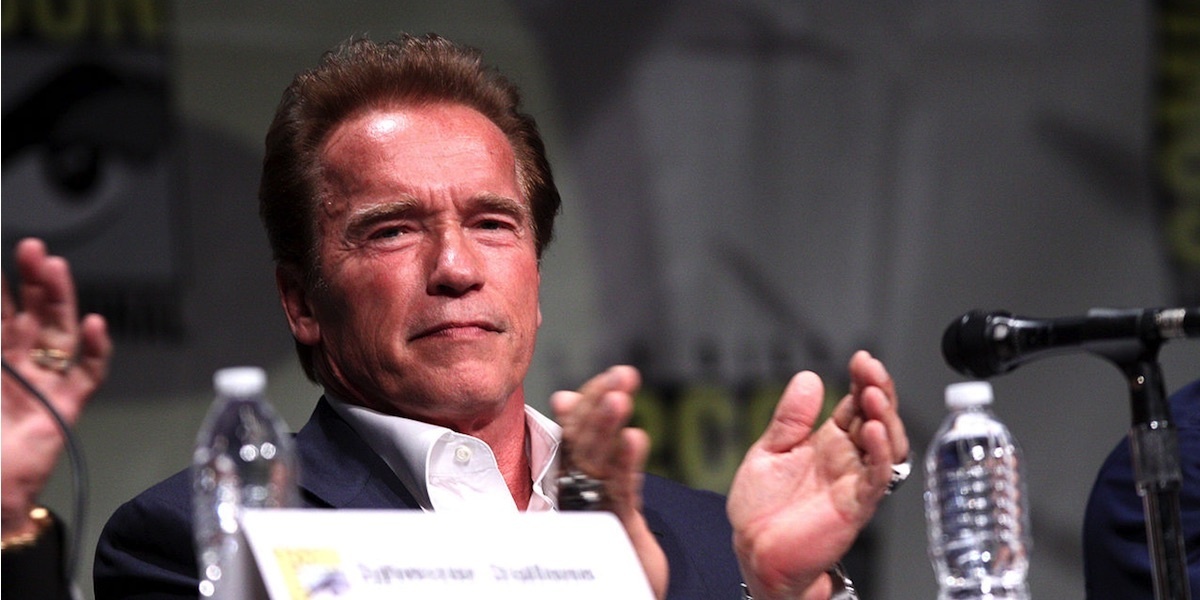

Arnold Schwarzenegger slammed President Trump‘s plans to dramatically expand offshore oil and natural gas drilling.
“Don’t touch California. If you want to drill, do it off Mar-a-Lago,” the former
California governor and vocal Trump critic tweeted Monday, referring to the president’s resort in Palm Beach, Florida. “Or better yet, look to the future, follow California’s lead and go green and we can all breathe easier. The U.S.’s largest economy is nearly 50 percent renewable. #ProtectThePacific.”
Earlier this month, the Trump administration proposed to increase new offshore oil and gas drilling off the Pacific and Atlantic coasts. The proposal drew criticism from liberals and conservatives alike, who warn that such operations at sea could expose coastal areas to the risks of blowouts, explosions, catastrophic spills and seismic blasting.
Schwarzenegger, a Republican, has emerged as a prominent environmentalist and renewable energy proponent. He has also thrown his weight behind an extension of California’s cap-and-trade program signed by his successor, Democratic Gov. Jerry Brown.
“Our fishing, tourism, and recreation industries employ hundreds of thousands of great people,” Schwarzenegger continued. “Our coasts are an economic gold mine. Do not put them at risk.”
Our fishing, tourism, and recreation industries employ hundreds of thousands of great people. Our coasts are an economic gold mine. Do not put them at risk.
— Arnold (@Schwarzenegger) January 22, 2018
Actor and well-known environmentalist
Leonardo DiCaprio similarly spoke out against offshore drilling via Twitter and included the same #ProtectThePacific hashtag seen in Schwarzenegger’s tweet.
The Pacific Coast is too valuable to risk a devastating oil spill. With a $56 billion ocean economy, and hundreds of thousands of tourism, recreation, and fishing jobs, it is time to #ProtectThePacific from offshore drilling. https://t.co/IAmmxohTaB *Reposted with updated figures
— Leonardo DiCaprio (@LeoDiCaprio) January 23, 2018
Controversially, a week after the Trump administration’s announcement was made, Interior Sec. Ryan Zinke said Florida is “obviously unique” and “off the table” from the list of states that could see increased offshore oil drilling after a plea from the state’s Republican governor, Rick Scott.
The move immediately prompted politicians and environmentalists from coastal states around the country to call for their states to also be exempt. According to the New York Times, “at least 15 governors of coastal states, one-third of them Republican, have publicly opposed Mr. Trump’s offshore drilling plan.”
Schwarzenegger’s tweet is akin to filmmaker and fellow Trump critic’s
Michael Moore threat to frack off the coast of the president’s Florida vacation home after the drilling plan was announced.
“We’ll be drilling right off the coast of Mar-a-Lago. God Bless You Donald Trump for making this possible! The oil we drill just off your beach will pay 4 our entire show! And any spills – we’re going to let the ppl of Florida keep whatever they collect 4 free!”
Moore also
responded to Florida’s removal from the drilling proposal.
“WAIT! WHAT? Trump’s removing Florida from the list of states to do offshore drilling after I’ve already rented my fracking equipment to drill off Mar-a-Lago? Three days after I announce, he does this? Bastard!”
Here’s our fracker! We’ll be drilling right off the coast of Mar-a-Lago. God Bless You Donald Trump for making this possible! The oil we drill just off your beach will pay 4 our entire show! And any spills – we’re going to let the ppl of Florida keep whatever they collect 4 free! pic.twitter.com/iGq2f1Gi33
— Michael Moore (@MMFlint) January 6, 2018

 233k
233k  41k
41k  Subscribe
Subscribe 